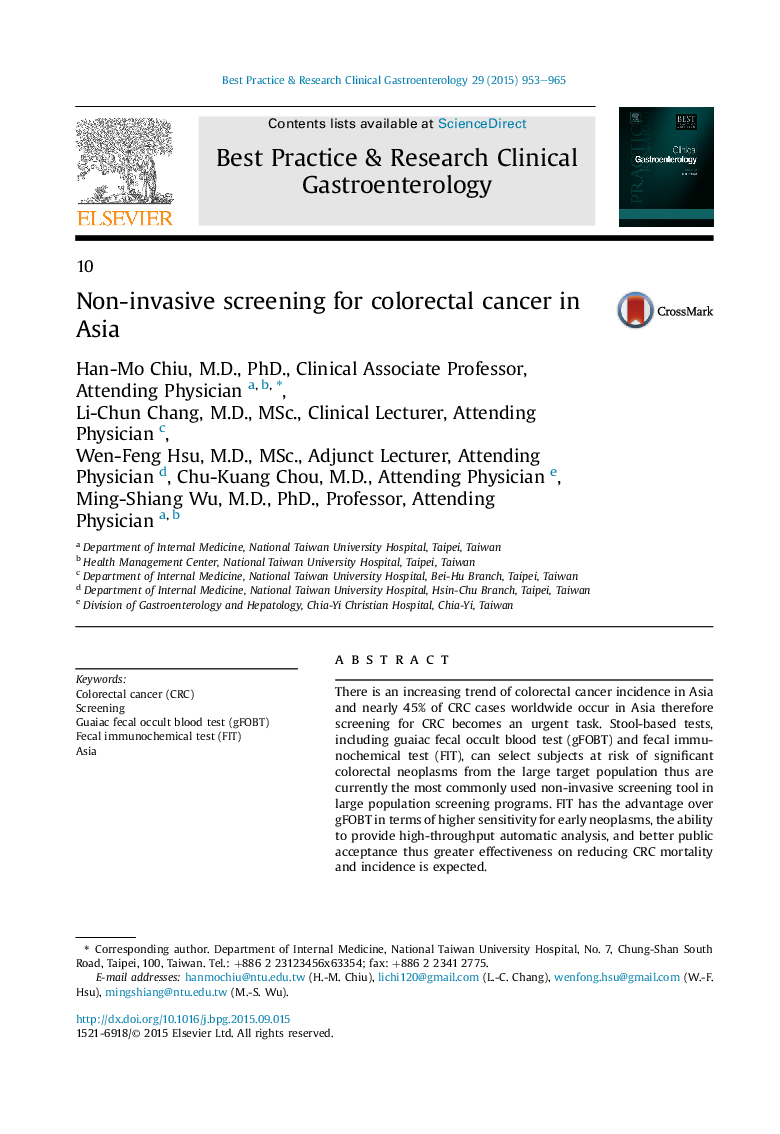| Article ID | Journal | Published Year | Pages | File Type |
|---|---|---|---|---|
| 3254182 | Best Practice & Research Clinical Gastroenterology | 2015 | 13 Pages |
There is an increasing trend of colorectal cancer incidence in Asia and nearly 45% of CRC cases worldwide occur in Asia therefore screening for CRC becomes an urgent task. Stool-based tests, including guaiac fecal occult blood test (gFOBT) and fecal immunochemical test (FIT), can select subjects at risk of significant colorectal neoplasms from the large target population thus are currently the most commonly used non-invasive screening tool in large population screening programs. FIT has the advantage over gFOBT in terms of higher sensitivity for early neoplasms, the ability to provide high-throughput automatic analysis, and better public acceptance thus greater effectiveness on reducing CRC mortality and incidence is expected.Owing to the large target population and constrained endoscopic capacity and manpower, FIT is nowadays the most popular CRC screening test in Asia. Some Asian countries have launched nationwide screening program in the past one or two decades but also encountered some challenges such as low screening participation rate, low verification rate after positive stool tests, low public awareness, and insufficient manpower. In addition, some controversial or potential future research issues are also addressed in this review.
